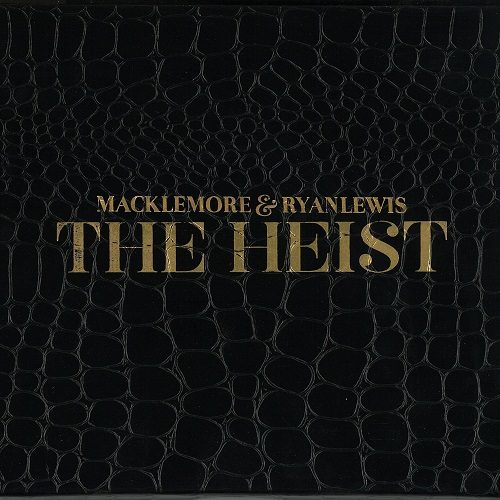Is there anything more exciting than watching something grow and develop from something small into something huge and dynamic? This type of excitement can be found in several things throughout a lifetime from watching a flower blossom, to watching a child grow into an adult. As a 23 year-old music snob, my favorite thing to witness cultivate is budding musicians. The latest, and frankly one of my favorite examples, is the Seattle emcee, producer combo, Macklemore & Ryan Lewis.
I’ve been a fan of Macklemore since I heard him on track with my favorite group the CunninLynguists, in late 2009. A few weeks later, I stumbled on a track titled, “Otherside,” which Ryan Lewis produced, and somehow made the classic bassline from the Red Hot Chili Peppers of the same name a mere afterthought in the song. And since then, I’ve been an avid supporter of the duo, writing countless blog posts about every brilliant music video they’ve released in the past two and a half years. I got to witness him perform in Ann Arbor back in April 2011, where Macklemore performed without a DJ, and still managed to make it one of the livest shows I’ve ever attended.
And finally after about three years, I finally get to see Macklemore grow into one of the biggest independent success stories hip hop has ever witnessed. Macklemore and Ryan Lewis’ debut album, “The Heist” which was recorded and distributed all in-house, dominated the iTunes charts and debuted at number two on Billboard with 78,000 copies sold in its first week. Yes their commercial success has me leaning back in my recliner like a proud father watching his son take his first steps, but musically “The Heist” still manages to exceed even my highest expectations.
Macklemore is a rare breed of emcee. Over the years, I’ve described his vocal delivery as a “conversational tone,” which successfully allows him to connect with the listener. Lewis’ production style has sort of evolved from relying on indie pop samples (on the group’s debut EP “Versus”) and samples from different eras (on he and Symmetry’s “LP”), to an even more fleshed out sound, almost completely reliant on live instrumentation. While Macklemore thrives at telling extremely personal narratives over Lewis’ wall of sound consisting of synths, horns and keys, “The Heist” shows that the duo can make just about any type of music, and do it well. The opening cut, “Ten Thousand Hours” is vintage Macklemore & Ryan Lewis, and the breakdown at the 3:13 mark, is the first of many chill-inducing moments:
“It’s the part of the show where it all fades away
When the lights go to black and the band leaves the stage
And you wanted an encore but there’s no encore today
Cause the moment is now, can’t get it back from the grave”
Macklemore flexes his double-time flows over the extremely up-beat “Can’t Hold Us,” goes almost full-force pop rap (but in the best way possible) on his ScHoolboy Q collab “White Walls,” and walks the fine line between corny and humorous on the bargain hunters’ anthem, “Thrift Shop.” The quirky single is one of the album’s riskiest tracks, but the man who pulled off tracks like “And We Danced” and “Stay At Home Dad” has a track record of making hilarious tracks with replay value. This is sure to be a track that will put off many people who take hip hop and themselves way too seriously, and like how “Stay At Home Dad” also managed to offer insight about gender roles in a funny song, he also works in some commentary about commercialism.
Commercialism is one of the most touched on topics on “The Heist.” On “Make the Money” Macklemore vows to “stay true” to his artistic roots and that “if I did it for the money, I would’ve been a fucking lawyer.” On frantic, synth-driven “Jimmy Iovine” (which features Ab-Soul on the hook) he breaks into Interscope’s offices to high-jack a record contract, only to find out that life on a major label is not as glamorous as he had hoped. And the epic “Wing$” is a track about America’s (and Macklemore included) obsessions with brands, and he uses Nike as the prime example as he raps about his favorite pair of shoes.
Other big risks the duo takes on their first LP together is “Same Love” which supports same-sex marriage. But again, he manages to take a hot button issue, and make it deeply personal, as he talks about his gay uncles and his own struggles with sexual identity as a child. And the album’s climax is “Starting Over” which is about his struggles relapsing. Like many Macklemore fans, the song that initially made me a fan was “Otherside” the song where he rapped about his addiction with cough syrup and alcohol, so needless to say I was absolutely shocked when I heard this song. Hearing Macklemore speak so openly about his relapse and how he let down not only his fans, but also his loved ones, is truly one of the most remarkable things I’ve ever heard.
Overall “The Heist” is a crowning achievement for hip hop, yes because of what it does for independent artists everywhere, but also musically. These are topics that are rarely touched on, and even more rarely done well. The missteps are few and far between (“Cowboy Boots” and “Gold” are far from bad, but fall short compared to the rest of the album), and the high moments are among the best tracks released in 2012.

